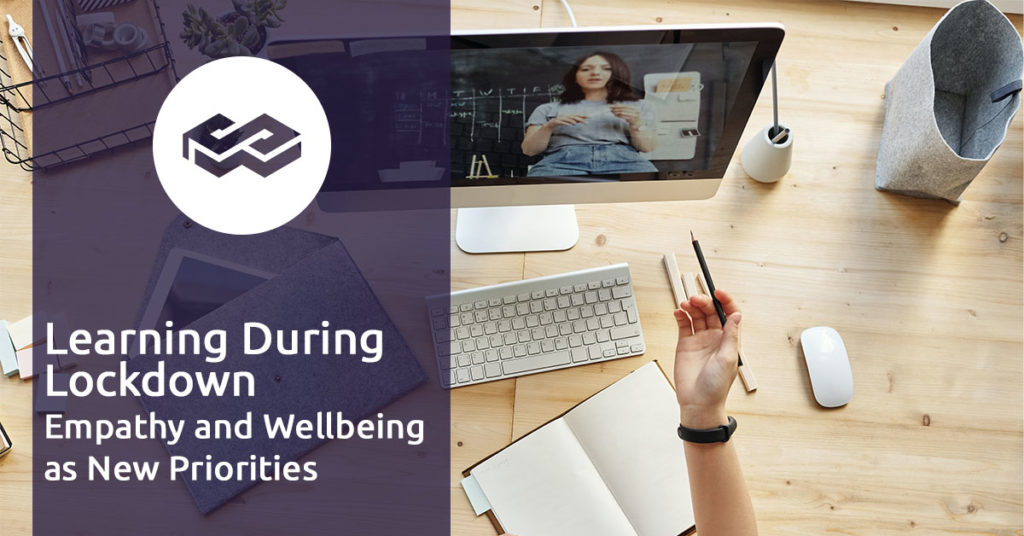Across the world, teachers have made valiant efforts to shift the school classroom online. They have rapidly brought themselves up to speed with technological platforms, adapted pedagogical practices to the new situation, and are working hard to keep children engaged and motivated remotely. It is heartening to see how effectively teachers have risen to this challenge.
This is a time of new realities in education. The process of online learning during lockdown has exposed the need to re-evaluate educators’ priorities. At the present time, empathy towards children’s struggles must be the highest priority of all those engaging with children. This is an uncertain, disorienting time for everyone, but for none more so than for children. Young people can be less equipped than adults to deal with the pressure of uncertainty, and the unknowns induce anxiety. Children usually look to parents for emotional support, but currently many parents are themselves facing new stresses of job insecurity and domestic adjustments.
Even for the most talented teachers, online teaching is limited as a substitute for a physical classroom. Apart from disruptive technical issues, sustaining concentration through consecutive video calls is more tiring than in person, and an interactive, collaborative classroom environment is almost impossible to replicate. Gauging how much learning is actually being absorbed presents its own challenge, considering the barriers to conducting reliable assessments online. In addition, despite teachers’ best efforts a proportion of students are unfortunately left out of online classes due to lack of devices or connectivity at home.
Under normal circumstances, educators burdened with the responsibility of producing exam results prioritise completion of a curriculum within finite time, passing on pressure to students through fast-paced working. Considering the new realities of lockdown, however, this is no longer appropriate. Educators must accept that rushing through the curriculum can no longer be the foremost priority of schooling in lockdown. Instead, syllabus-completion must be seen more as a luxury that the skilled teacher may attempt, rather than the primary aim of the teaching process. The rationale for conducting live classes must therefore be viewed through this lens.
There are three main benefits of conducting online classes at the present time, other than syllabus-completion. The first is prevention of ‘learning loss’. It is a well-documented phenomenon that students who spend more than a few weeks detached from formal education not only fail to acquire new learning, but in fact lose a significant amount of previous learning. The mere act of regular engagement with their class subjects can prevent this, supporting students to at least maintain their prior learning even if new learning is unrealistic to attain.
The second is providing children with a sense of routine and structure. Confined to the same home for weeks on end, children find it difficult to call on the self-discipline required to maintain a productive schedule. It is essential for students to have structured time, not only to ensure that their time is not wasted but also to provide a sense of meaning and purpose during this uncertain period. This has an important effect on limiting anxiety among children.
Thirdly, children benefit immensely from a feeling of camaraderie – a sense of ‘we’re all in this together’. Connecting with their teachers and peers on a regular basis, interacting with friends in a safe online environment, and participating in online group activities all contribute to this community feel. This is a welcome distraction from the negative news surrounding them and the monotony of interacting solely with the same household members, and it reduces the feeling of isolation.
It is essential that we educators shift our teaching mindset at present from the traditional model of ‘syllabus-completion above all else’ to a greater recognition of the importance of these other reasons for teaching at present – a shift requiring empathy and a willingness to prioritise the wellbeing of children. When this mental shift is made, and syllabus-completion becomes understood as a fourth priority instead of the first, appropriate adjustments to teaching methodology will start to take shape naturally.
For example, teachers fixated on syllabus-completion rarely spare limited class time for purposes beyond core curriculum delivery. However, if an empathy-led approach is prioritised, it would be natural to allow 5-10 minutes of class time for relaxed conversation to inquire about children’s wellbeing or facilitate a casual chat, thereby boosting children’s feeling of community. From the angle of rapid syllabus-completion, homework and asynchronous learning must be strictly in line with the curriculum; putting wellbeing first, however, means homework can become an opportunity to pursue creative projects, to do activities that encourage meaningful interaction between the child and others in their household, or to produce something that can be shared and discussed in class. Teachers with this empathetic mindset during lockdown have been innovating with online assemblies, yoga sessions, and hobby activities. This has been to the great benefit of children in these troubled times, and they retain more learning when their state of mind is more at peace as a result.
We cannot ignore the imperatives of the syllabus, and it would be reasonable to expect it to resume priority position after life returns to normality – albeit, hopefully, with newfound appreciation for the importance of paying attention to students’ wellbeing in general. However, the present realities of lockdown have generated different challenges, which cannot be tackled through the relentless prioritisation of syllabus-completion above the wellbeing of children.

